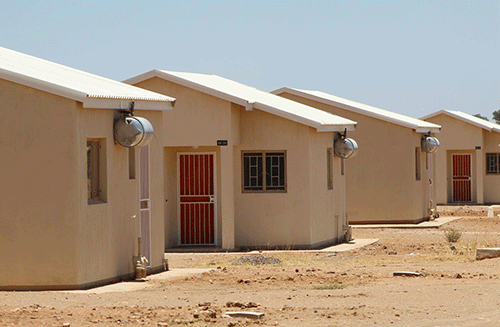BEIRUT – US Marines waded through waves at a Beirut beach yesterday to whisk hundreds of Americans to Cyprus, where thousands of foreigners have fled to escape Israeli air strikes against Lebanon.
About 40 lightly armed Marines, aided by Lebanese soldiers, carried women and children to a landing craft. The Marines landed near Beirut at dawn and began ferrying the first 300 of 1 200 Americans expected to be evacuated during the day.”We are thankful to leave but our hearts and prayers are with Lebanon and its people,” said Mireille Ayoub, 47, from Los Angeles, on the landing craft taking her to the troop carrier USS Nashville.”It’s very bad there, unsafe and uncertain.”Thousands have poured into Cyprus since Israeli air raids began nine days ago, including scores of young children and people in wheelchairs.”Over the next couple of days you are going to be seeing a very large influx,” US Ambassador to Cyprus Ronald Schlicher told reporters.”Maybe five, maybe six, maybe seven (thousand).”As helicopters clattered overhead and forklift trucks unloaded baggage, a woman with a bandaged arm was taken off a cruise liner on a stretcher and put straight into an ambulance.Nabil El-Hage, 47, a professor of management science at Harvard Business School, said: “I feel really sad, I really do.I have two countries.I have my country of birth and my adopted country and I love both.I hate to see Lebanon destroyed”.Three ships docked in the port of Larnaca in Cyprus late on Wednesday – a US-chartered cruise liner carrying 1 044 people, mostly Americans, a UN ship with an unknown number aboard and a French ship with 320 on board.Another French ship with 900 French evacuees arrived yesterday morning and two Greek navy frigates were due to bring about 800 foreigners during the day.About 400 Italians were expected to be evacuated aboard an Italian warship.The United States said it could evacuate up to 6 000 Americans from Lebanon by Friday.Nine military ships, including a helicopter carrier were involved in the operation.The Marines were back in Lebanon nearly 23 years after a Shi’ite Muslim suicide bomber blew up their barracks in Beirut in 1983, killing 220 Marines and 21 other service personnel.”We are here to help people,” said Petty Officer Eric Walker, 36, from Canton, Mississippi.”It’s one of the reasons I joined the military.I’m proud to do it.”Holding back tears, many evacuees said they were concerned about the families they were forced to leave behind.”I’ve never imagined that I’d leave like this.I’m going but leaving my heart in my country and my village,” Mustapha Safieddine, a 48-year-old father of three who holds French citizenship, said with a choking voice.He was among 550 people boarding small boats ferrying them to a French ship in the southern Lebanese port city of Tyre, scene of some of the fiercest Israeli air strikes.Canadian Prime Minister Stephen Harper, in Europe for a trip, diverted his plane to Cyprus on Wednesday to pick up Canadians.British Foreign Office Minister Lord Triesman was due in Cyprus yesterday to review the evacuation of Britons.While many were fleeing by sea, tens of thousands of Lebanese, as well as foreigners, have braved the road to Syria.- Nampa-ReutersThe Marines landed near Beirut at dawn and began ferrying the first 300 of 1 200 Americans expected to be evacuated during the day.”We are thankful to leave but our hearts and prayers are with Lebanon and its people,” said Mireille Ayoub, 47, from Los Angeles, on the landing craft taking her to the troop carrier USS Nashville.”It’s very bad there, unsafe and uncertain.”Thousands have poured into Cyprus since Israeli air raids began nine days ago, including scores of young children and people in wheelchairs.”Over the next couple of days you are going to be seeing a very large influx,” US Ambassador to Cyprus Ronald Schlicher told reporters.”Maybe five, maybe six, maybe seven (thousand).”As helicopters clattered overhead and forklift trucks unloaded baggage, a woman with a bandaged arm was taken off a cruise liner on a stretcher and put straight into an ambulance.Nabil El-Hage, 47, a professor of management science at Harvard Business School, said: “I feel really sad, I really do.I have two countries.I have my country of birth and my adopted country and I love both.I hate to see Lebanon destroyed”.Three ships docked in the port of Larnaca in Cyprus late on Wednesday – a US-chartered cruise liner carrying 1 044 people, mostly Americans, a UN ship with an unknown number aboard and a French ship with 320 on board.Another French ship with 900 French evacuees arrived yesterday morning and two Greek navy frigates were due to bring about 800 foreigners during the day.About 400 Italians were expected to be evacuated aboard an Italian warship.The United States said it could evacuate up to 6 000 Americans from Lebanon by Friday.Nine military ships, including a helicopter carrier were involved in the operation.The Marines were back in Lebanon nearly 23 years after a Shi’ite Muslim suicide bomber blew up their barracks in Beirut in 1983, killing 220 Marines and 21 other service personnel.”We are here to help people,” said Petty Officer Eric Walker, 36, from Canton, Mississippi.”It’s one of the reasons I joined the military.I’m proud to do it.”Holding back tears, many evacuees said they were concerned about the families they were forced to leave behind.”I’ve never imagined that I’d leave like this.I’m going but leaving my heart in my country and my village,” Mustapha Safieddine, a 48-year-old father of three who holds French citizenship, said with a choking voice.He was among 550 people boarding small boats ferrying them to a French ship in the southern Lebanese port city of Tyre, scene of some of the fiercest Israeli air strikes.Canadian Prime Minister Stephen Harper, in Europe for a trip, diverted his plane to Cyprus on Wednesday to pick up Canadians.British Foreign Office Minister Lord Triesman was due in Cyprus yesterday to review the evacuation of Britons.While many were fleeing by sea, tens of thousands of Lebanese, as well as foreigners, have braved the road to Syria.- Nampa-Reuters
Stay informed with The Namibian – your source for credible journalism. Get in-depth reporting and opinions for
only N$85 a month. Invest in journalism, invest in democracy –
Subscribe Now!










